Looking for a good book to read this summer? Forget trendy bestsellers and treat yourself to a classic. Here are 12 pretty books to consider – plus, 12 reasons to read classic literature.
I’m talking about Pretty Books (Painted Editions), published by Harper Muse. Each book features paintings by Laci Fowler, an artist based in Nashville, Tennessee.
Besides the lovely artwork, the books have sculpted cover boards with gold foil trim. Elegant quote pages provoke thought and inspiration. A ribbon bookmark adds a finishing touch.
Each book lives up to the “pretty books” moniker, and many are appropriate for young readers. What’s more, each one offers a unique perspective – either from its theme or setting. Let’s take a closer look.
📋 DISCLOSURE – This page has affiliate links. If you buy something through one of these links, I may earn a commission at no cost to you. Read more here.
12 Reasons to Read Classic Literature
There are SO many reasons to read classic literature. I hope my post inspires you to visit your library or bookstore – or the shopping buttons below 😉 – to grab a classic for summer reading.
Before we get to the books, though, let’s talk about the benefits of reading classic literature. There are many – and this list is, by no means, exhaustive. But it’s a good summary.
Here are 12 reasons to read classic literature.

1. Learn Valuable Moral Lessons
“Moral character makes for smooth traveling (Proverbs 11:5, The Message).” Classic literature conveys moral lessons that span generations and cultures. Morality actually changes very little over time. Seeing this in a classic text reinforces the foundational truths we live by.
2. Develop Empathy and Character
Research in psychology found that people who read fiction have better social cognition. The ability to connect with people from another era gives you empathy for others today. This makes you a better person, a better friend, a better member of society.
3. Discover Historical Perspectives
“Books that reflect lives similar to ours are called mirrors,” said Lisa Van Gemert. “Books that give us a glimpse of a life different from ours are called windows.” Classic literature offers a view of different cultures and historical perspectives. Lessons from the past can inform your present and future.
4. Show Your Gratitude for Literacy
Despite a steady rise in literacy rates, there are 773 million illiterate adults in the world. Most of them are women. When you read a classic, you show gratitude for the gift of literacy by using it in a wise way.
5. Understand Literary References
Ever had a conversation (or read something) where someone dropped a reference and you didn’t get it? You can’t understand references to classics (allusions) if you haven’t read them. Here’s a list of famous allusions. Test yourself, then commit to reading the classics.
6. Become a Better Conversationalist
When you expose yourself to great literature, you become a better conversationalist. You engage with others in new and richer ways. Read the classics and YOU will start dropping literary references like a pro.
7. Improve Your Vocabulary
“Reading of all kinds improves vocabulary, but reading the classics does so in a new way,” said Dr. David Urban. This is due to new (to you) words and a more sophisticated use of words. Even if a word is not used today, the knowledge of how it connects with today’s language has value.
8. Increase Your Attention Span
The average human attention span is 8.25 seconds. People have shorter attention spans than goldfish! Do you live tethered to your digital screens? They are unending sources of distraction.
You can increase your attention span by reading classic literature. When you read a classic, you need more concentration to stay with the plot. This strengthens your ability to stay focused.
9. Improve Your Brain Health
According to research, reading the classics stimulates the brain. Classic literature forces you to “read between the lines” in a way other forms of writing may not. As you develop critical thinking, your brain forms new pathways. This prevents cognitive decline.
10. Support Your Mental Health
Bibliotherapy is a real thing. Bibliotherapists use books (usually fiction) to support a patient’s mental health. Reading helps people understand perspectives, make sense of the past, and experience hope. Reading quality literature improves self-awareness and self-worth.
11. Gather Writing Inspiration
Are you a writer, an author, or a blogger like me? If you’re a writer (in any form), reading classic fiction can give you a broader base of inspiration. Many modern writers lean on the classics for ideas and creativity.
12. Enjoy the Entertainment
Classic literature is a cheap form of entertainment, which is great if you’re on a budget. What’s more, great novels are fun to read. Once you are familiar with reading classics, you’ll appreciate the stories.
What’s more, you’ll appreciate the challenge. “I’ve read hundreds of novels,” said Van Gemert, “but the ones that stick with me are [what] others would consider the ‘hard’ ones.”

12 Classic Books to Read This Summer
Classic literature transcends time. It never goes out of style. I’m showcasing Pretty Books (Painted Editions) for three reasons. First, they reflect different genres, so there’s something for everyone.
Second, they include children’s literature, so your child or teen can enjoy them. Just because school is out doesn’t mean your kids can’t read a classic this summer.
Third, they live up to their moniker. They’re so pretty! They would make a lovely addition to your home library. And they’re the perfect gift for your favorite bibliophile.
Pretty Books (Painted Editions) consist of three four-volume sets. Harper Muse published the sets in Spring 2022, Fall 2022, and Summer 2023. The books are also available as individual volumes. Here are the details:
1. Frankenstein
Frankenstein explores the terror of what happens when humanity plays God. It is a tragic tale of murderous rage and the fatal consequences of revenge.
- Title: Frankenstein
- Author: Mary Shelley
- Illustrator: Laci Fowler
- Publisher: Harper Muse
- Publication Date: May 24, 2022
- Print Length: 272 pages
- Reading Age: Adult
2. The Great Gatsby
Set in Jazz Age New York, The Great Gatsby tells the tragic story of Jay Gatsby, a self-made millionaire. It follows his pursuit of Daisy Buchanan, a wealthy woman whom he loved in his youth.
- Title: The Great Gatsby
- Author: F. Scott Fitzgerald
- Illustrator: Laci Fowler
- Publisher: Harper Muse
- Publication Date: May 24, 2022
- Print Length: 176 pages
- Reading Age: Adult
3. The Return of Sherlock Holmes
The Return of Sherlock Holmes is a collection of 13 short stories about the famous detective. All take place after his apparent death in The Adventure of the Final Problem.
- Title: The Return of Sherlock Holmes
- Author: Arthur Conan Doyle
- Illustrator: Laci Fowler
- Publisher: Harper Muse
- Publication Date: May 24, 2022
- Print Length: 416 pages
- Reading Age: Adult
4. The Wonderful Wizard of Oz
The Wonderful Wizard of Oz follows Kansas farmgirl Dorothy and her dog Toto. A cyclone takes them to a magical place called Oz, where she seeks help from the Great Wizard. Along the way, she meets the Scarecrow, Tin Man, and Cowardly Lion – each on his own personal quest.
- Title: The Wonderful Wizard of Oz
- Author: L. Frank Baum
- Illustrator: Laci Fowler
- Publisher: Harper Muse
- Publication Date: May 24, 2022
- Print Length: 176 pages
- Reading Age: 12 years and up
5. Jane Eyre
Jane Eyre is the story of a woman who struggles to escape the hardships of her childhood. In time, she finds work as a governess. But her new life derails when she falls in love with her mysterious employer.
- Title: Jane Eyre
- Author: Charlotte Brontë
- Illustrator: Laci Fowler
- Publisher: Harper Muse
- Publication Date: November 8, 2022
- Print Length: 656 pages
- Reading Age: Adult
6. Little Women
Little Women introduces the March sisters: Meg, Jo, Amy, and Beth. Together, they endure hardships, experience love, and enjoy adventures in Civil War New England.
- Title: Little Women
- Author: Louisa May Alcott
- Illustrator: Laci Fowler
- Publisher: Harper Muse
- Publication Date: November 8, 2022
- Print Length: 656 pages
- Reading Age: 8 years and up
7. The Mysterious Affair at Styles
The Mysterious Affair at Styles introduces author Agatha Christie and her detective Hercule Poirot. When a family matriarch dies from poison, suspicion falls on her heirs.
- Title: The Mysterious Affair at Styles
- Author: Agatha Christie
- Illustrator: Laci Fowler
- Publisher: Harper Muse
- Publication Date: November 8, 2022
- Print Length: 224 pages
- Reading Age: Adult
8. Persuasion
Persuasion is a story of second chances for Anne Elliot and Frederick Wentworth. What transpires when they reunite is a moving love story tinged with heartache.
- Title: Persuasion
- Author: Jane Austen
- Illustrator: Laci Fowler
- Publisher: Harper Muse
- Publication Date: November 8, 2022
- Print Length: 304 pages
- Reading Age: Adult
9. Anne of Green Gables
Anne of Green Gables is a sentimental coming-of-age story. It centers on a spirited orphan girl who finds a home with elderly siblings.
- Title: Anne of Green Gables
- Author: Lucy Maud Montgomery
- Illustrator: Laci Fowler
- Publisher: Harper Muse
- Publication Date: July 4, 2023
- Print Length: 384 pages
- Reading Age: 13 years and up
10. Peter Pan
In pursuit of his lost shadow, a boy named Peter Pan enters the bedroom of three siblings: Wendy, Michael, and John. He invites the children to Never Land, a place where they’ll never have to grow up.
- Title: Peter Pan
- Author: James Matthew Barrie
- Illustrator: Laci Fowler
- Publisher: Harper Muse
- Publication Date: July 4, 2023
- Print Length: 176 pages
- Reading Age: 8 years and up
11. The Secret Garden
The Secret Garden is a coming-of-age story about a little orphan girl. Born into luxury and loneliness, she longs to bring a mysterious garden – and her uncle’s broken heart – back to life.
- Title: The Secret Garden
- Author: Frances Hodgson Burnett
- Illustrator: Laci Fowler
- Publisher: Harper Muse
- Publication Date: July 4, 2023
- Print Length: 304 pages
- Reading Age: 13 years and up
12. Winnie-the-Pooh
Winnie-the-Pooh is the tale of a bear named Pooh and his delightful animal friends. Milne wrote it for his son, Christopher Robin, whose toy animals were the basis for many of the characters.
- Title: Winnie-the-Pooh
- Author: Alan Alexander Milne
- Illustrator: Laci Fowler
- Publisher: Harper Muse
- Publication Date: July 4, 2023
- Print Length: 208 pages
- Reading Age: 13 years and up
Conclusion
There you go – 12 pretty books, plus 12 reasons to read classic literature. Whether you read one for the first time or read it again, it will entertain and inspire you. So choose a classic for your summer reading, and enjoy! ◻️
Related Posts
- Bedtime Story Books: A Good Way to Tuck In Your Baby at Night
- How to Experience Scripture in a Whole New Way
- Streams in the Desert: A Legacy of Wisdom and Faith

Now It’s Your Turn
Thank you for reading my post. Now it’s YOUR turn to chime in. Which of these classic books (any edition) have you read? Which one is on your “to read” list?
Let’s fill the comments with friendly conversation. Scroll down to leave a reply, ask a question, or just say hello. And if you liked this post, please give it a share.
Blessings, Annette
📋 NOTE – You are reading “12 Pretty Books (Plus, 12 Reasons to Read Classic Literature” on Savoring Home. First published in June 2023, it was updated in August 2023.
Photo Sources
- Arada Photography / Getty Images | Canva | License
- Amazon.com | Try Prime. Cancel anytime.

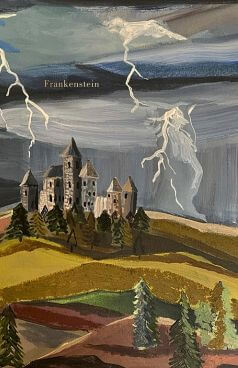
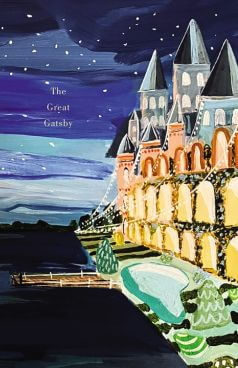
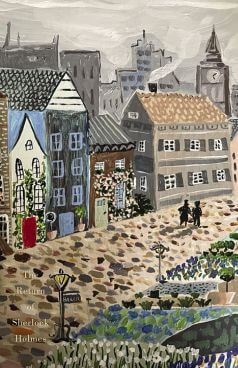
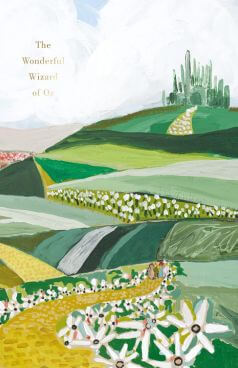
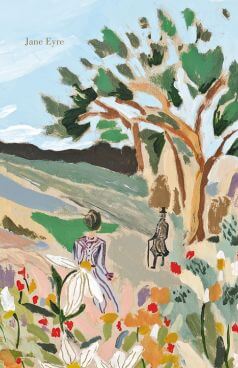
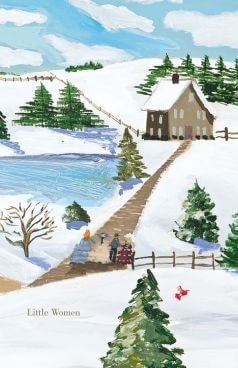
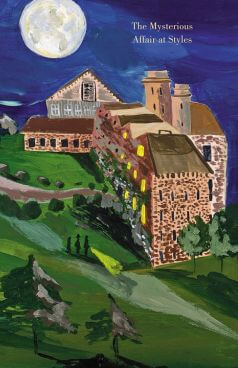
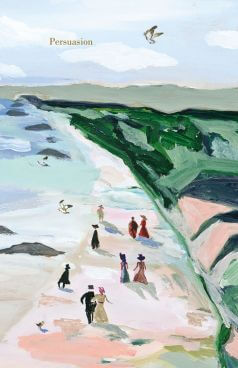
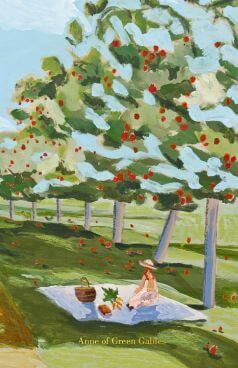
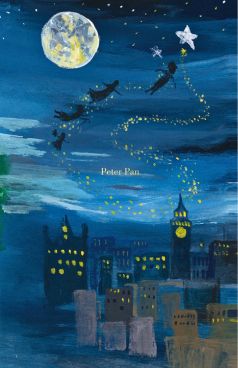
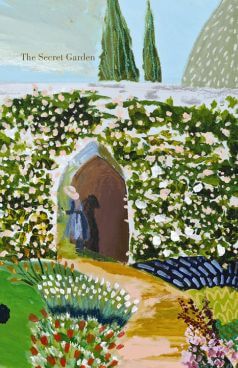
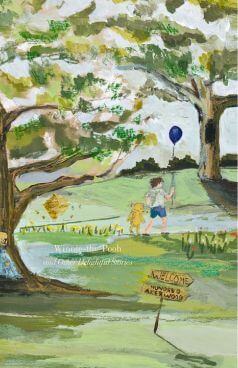
Have you read any good books this summer? Classics are fun to read any time of the year, and there’s a book here for every month. Which one should I read first – Persuasion by Jane Austen, or Jane Eyre by Charlotte Brontë?